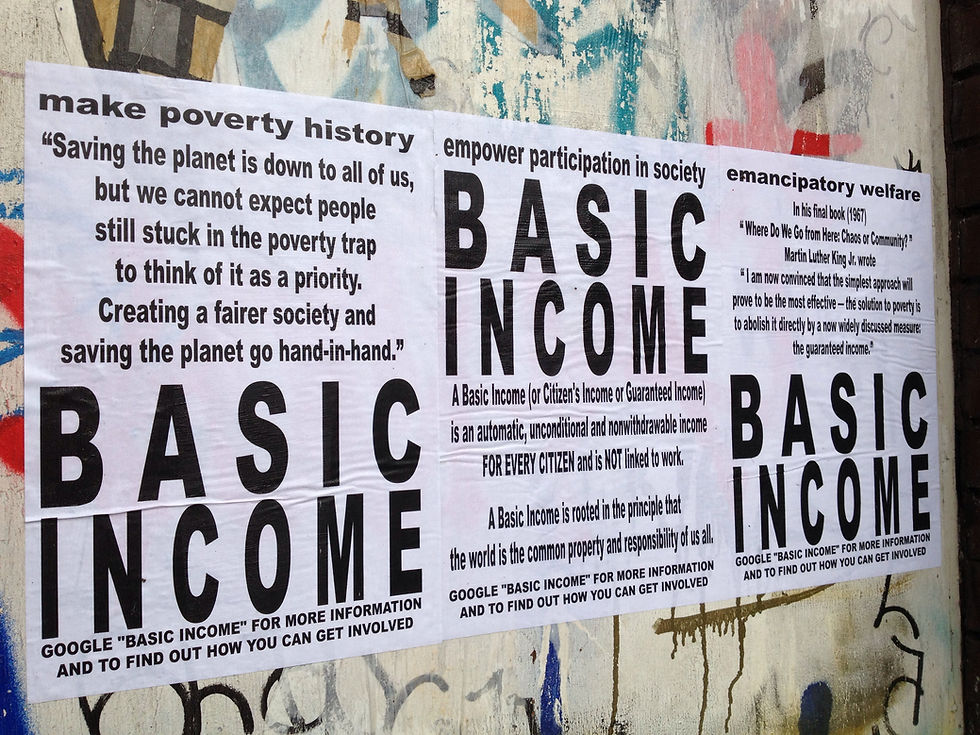Tampon Tax Abolished in the UK
- Arya Jyothi

- Jan 5, 2021
- 3 min read
Updated: Dec 23, 2024
Chancellor Rishi Sunak had promised to put an end to the 5% VAT on sanitary products as soon as the UK was out of the European Union.
In response to growing criticism and campaigns such as Stop Taxing Periods, January 1st 2021 saw the Value Added Tax on sanitary products cut to zero, just as the UK exited the EU. According to the government website, the move comes as “part of wider government action to End Period Poverty”.
This comes following years of activism demanding the government to declassify period products as non-essential items - a branding that has been in place since 1973, when the tax was 10% and rose significantly to its highest point of 17.5% in 1991. However, in 2000, the lower 5% tax was instated after Labour MP Dawn Primarolo led a successful campaign and this rate has remained since.
Despite efforts to bring the VAT down to zero for decades, the government insisted that it was not possible while the UK was under EU tax laws, which classified the products as luxuries and not essentials.
As a temporary solution, a government scheme set up in 2015 meant all the VAT acquired from sanitary products were put into a Tampon Tax Fund, which was then donated to women’s charities and projects. However, this scheme was criticised for its implication that the government's funding gaps associated with supporting and protecting women were also being funded by women. In 2017, the fund was condemned after it had emerged that some of the money was being directed to Life, an anti-abortion charity.
The news that the “sexist” tax has been scrapped has been welcomed with open arms by campaigners. Talking to The Independent, Laura Coryton, who set up the Stop Taxing Periods campaign, said: “This change is about so much more than a drop in period products and prices. While of course, that is really important as poverty is increasing during the crisis, it is also about acknowledging issues we deem to be women’s issues are about all of society. We are ending a sexist policy.”
A survey conducted by Plan International UK charity in 2017 found that 1 in 10 girls had been unable to afford sanitary products and therefore had to improvise, and 1 in 7 had to ask their friends for sanitary products due to affordability difficulties. Additionally, period poverty has caused around 137,000 children across the UK to miss school days.
The tax cut, the government estimates, will save around 7p on a pack of 12 tampons and 5p on a pack of 12 sanitary pads, which, over a lifetime, adds up to an approximate saving of £40.
While Coryton celebrates the axing of the tampon tax, she expresses her frustration at it being used as part of a political pro-Brexit agenda. The criticism came after Sir Bernard Jenkin said during a Brexit debate a few weeks ago that abolishing the tampon tax would only be possible by leaving the EU. However, Coryton disagrees. In 2016, a unanimous vote by the European parliament meant the process of allowing any EU country to abolish the tampon tax was permitted to start.
“That process has since gone cold, because we then left the EU and we were the ones pushing for it,” Coryton told the Guardian. “So if anything, actually, Brexit has made it worse, because if we were to have stayed in the EU, then this piece of legislation would have gone through… then any EU member would be able to axe the tax, not just the UK.”

While it has been controversial for years, the abolition of the tampon tax comes as huge relief and success for the campaigners, individuals suffering from period poverty, and women’s rights charities across the UK.

_edited.png)



Comments